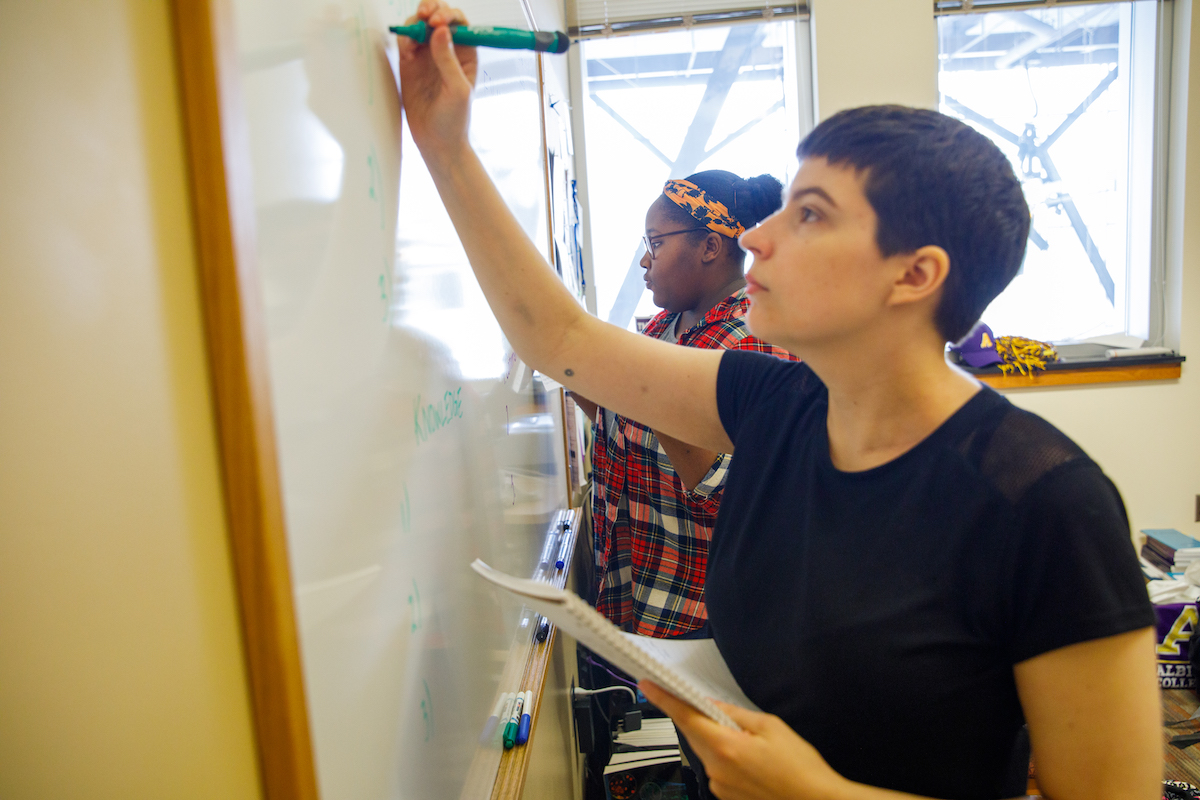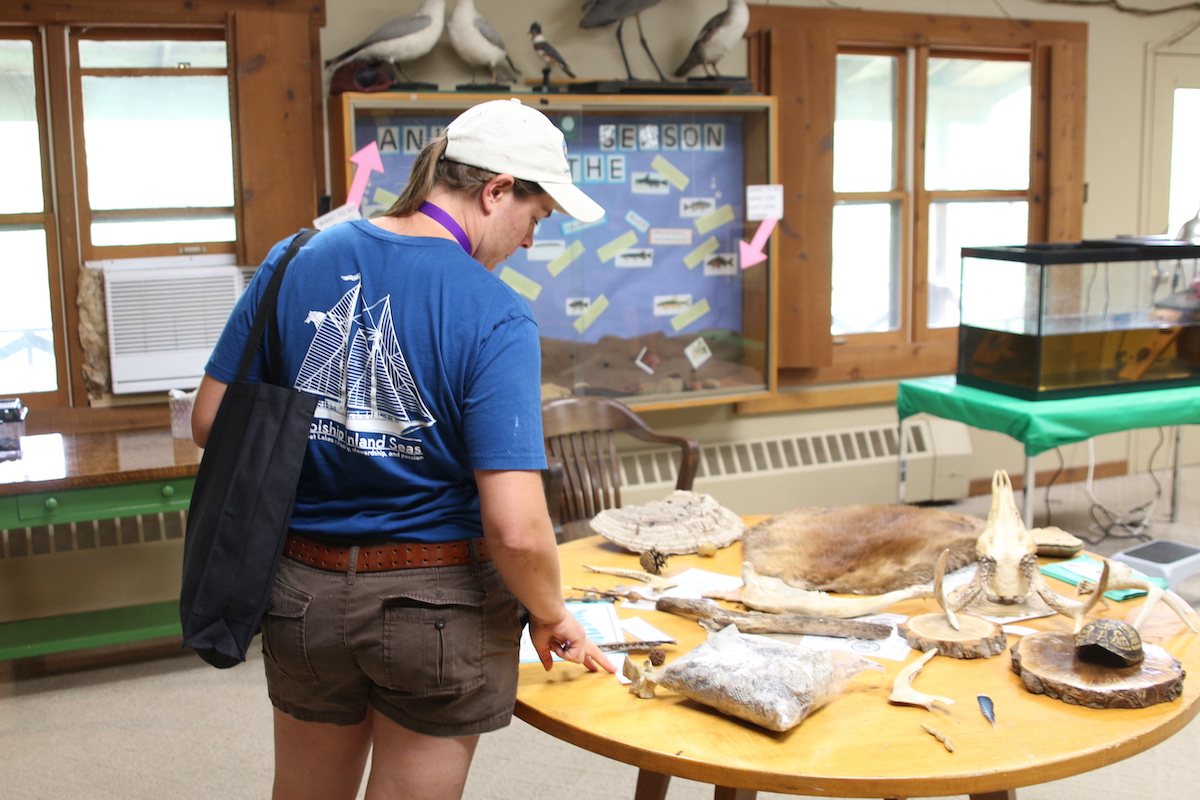Geology Major and Minor
Study the Earth as systems in motion—from a stream moving a pebble over a matter of seconds to tectonic plates moving entire continents over millions of years and everything in between. Develop a deep understanding of our Earth and apply this to the pressing issues of today, including climate change, energy sources, and sustainability.
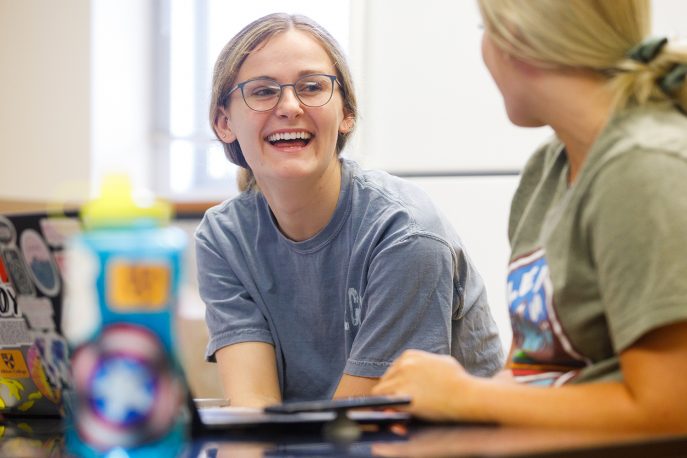
Why Study Geology at Albion?
At Albion, we embrace active learning. As a geology major, you will investigate change over time, including the evolution of life through fossils, the growth of minerals, and the transformation of landscapes. Through hands-on experience, small classes, and close relationships with faculty, you’ll develop keen analytical, visual, creative and research skills. You’ll have the opportunity to practice these all over the world through our field trips and courses – from Wyoming and Hawaii to the Appalachian Mountains and Sweden to the Kalamazoo River right on campus.
You’ll be able to work closely with our faculty on active research in the field, in a lab, doing computational analyses, and contributing to scientific publications. You will also be part of a supportive community, in which we all work together as a team.
What Will You Learn as a Geology Major?
You'll study the geological processes that create landscapes and ocean basins, and learn how the world’s oceans, atmosphere, and climate interact with one another.
You'll learn to analyze fossils and rock samples in our labs to understand evolving environments and life forms on Earth through time.
You’ll use your broad liberal arts foundation to contextualize your knowledge of the natural world, undertake and present field and/or lab research in an area of your choosing, and develop the skills necessary to succeed in your future career.
Highlights
Field Opportunities
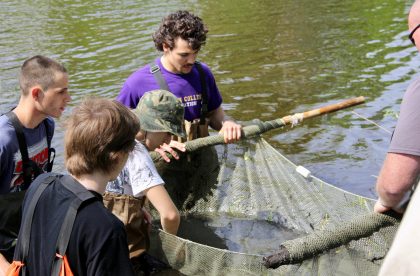
As a geology major, nature is your classroom. With the support of our generous alumni, we subsidize our field trips so all can participate in our field programs. We offer both annual regional geology field trips and a biennial five-week field camp in the Rockies, along with local field labs and independent research in diverse locales. In classes, you will venture to the nearby Kalamazoo River to sample its waters, investigate ancient sedimentary environments near Lansing, and evaluate the glacial landforms of southern Michigan.
Internships

Spend a semester or summer gaining real world experience. Our students have interned at state and local government agencies, museums, national parks, Los Alamos National Laboratory, private companies, and nonprofit organizations.
Research

Research is a fundamental part of the Albion geology learning experience. You will have opportunities to undertake field and lab research in your classes, spend a semester or summer working on independent research in collaboration with faculty members, write a senior thesis, and launch your graduate education or career by attending a national geology conference with the support of our endowed Lawrence D. Taylor Undergraduate Geology Research fund.
Laboratories
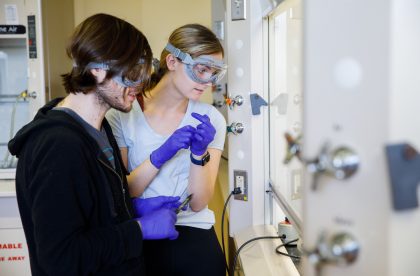
Get hands-on experience in our cutting-edge research facilities. Our science complex includes state-of-the-art teaching and research laboratories; extensive mineral, fossil, rock, and map collections; field sampling and surveying equipment; water chemistry analytical instruments, and a geology shop for sample preparation. You will learn how to investigate rocks and fossils under the microscope and assess the quality of natural waters using cutting-edge laboratory benchtop equipment.
Careers & Outcomes
Employment of geoscientists is projected to grow 5 percent from 2019 to 2029, faster than the average for all occupations, according to the U.S. Bureau of Labor Statistics. The need for energy, environmental protection, and responsible land and resource management is projected to spur demand for geoscientists in the future.
Our graduates have been employed by research institutes, state and national geological surveys, universities and colleges as geology professors and research scientists and secondary schools as earth science teachers. Below are examples of some of the professions our students choose, as well as graduate programs our students have recently attended.
Job Titles
- Environmental Consultant
- Consulting Geologist
- Mine Geologist
- Geotechnical Engineer
- Hydrographic Surveyor
- Hydrogeologist
- Meteorologist
- State-certified Professional Geoscientist
- Mud Logger
- Field Assistant
- Engineer
- Park ranger
- Museum collections manager
- Science outreach and education
- Careers with government agencies: USGS, EGLE, USFW, USFS, BLM, NPS, and DEQ.
Graduate Schools
- Arizona State University
- Bowling Green State University
- Indiana University Purdue University at Indianapolis
- Michigan State University
- New Mexico Tech
- Texas A&M
- The Ohio State University
- The University of Chicago
- University of Alberta
- University of Iowa
- University of Maryland
- University of Michigan
- University of Nebraska, Lincoln
- University of Oregon
- University of Wisconsin
- Washington State University
- Wayne State University
- Western Michigan University
